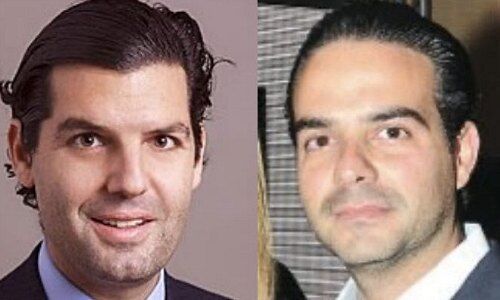Banca Credinvest had far deeper Venezuelan ties than emerged in a Swiss sanction for PDVSA dealings, finews.com has learned. A second «bolichico» was an investor in the Swiss bank – until the U.S. charged him with money laundering.
The $2.31 billion Lugano wealth manager was ordered by Swiss financial regulator Finma to cut all ties to Venezuela and is banned from accepting any new high-risk clients for three years. The sanction is the result of a two-year investigation into PDVSA corruption.
While Credinvest’s secret shareholder, Alejandro Betancourt, spilled out as a side effect of the probe, the Swiss bank’s Venezuelan ties run far deeper: Francisco Convit was a shareholder until 2018, a source familiar with the matter told finews.com.
«Bolichico» Banking
Convit sold down after U.S. prosecutors in Miami charged him with laundering PDVSA money. The Venezuelan is one of a wider group of investors around Betancourt who bought stakes in the Swiss private bank in 2013, according to a document first reported by «infodio» and seen by finews.com.
Convit, who is considered a fugitive by U.S. officials, couldn’t be reached for comment. Convit and Betancourt – who are cousins – were reportedly clients of Matthias Krull at Julius Baer. The ex-private banker was sentenced to a ten-year prison term in 2018 but is expected to turn state's witness.
The duo belongs to a crop of well-connected, younger businessmen who had grown rich under the regime of Hugo Chavez, often referred to as bolichicos. Julius Baer is one of more than a dozen Swiss and Liechtenstein private banks to have catered to them. Credit Suisse was also sanctioned, in 2018, for delinquency in fighting PDVSA graft money in its accounts.
Majority Investor Steps In
Credinvest represents a tiny puzzle piece in the $1.5 trillion that «infodio» estimates disappeared from PDVSA’s coffers between 2002 and 2014. The website is devoted to chronicling the graft at Venezuela’s state-controlled oil and gas firm.
At Credinvest, the bulk of the 2013 group of investors – except Convit, Betancourt, and two other unnamed individuals – exited four years later. When Convit exited Credinvest in 2018, he sold his share of less than 5 percent back to the firm’s major shareholder.
Fulvio Pelli, a lawyer for the Swiss bank, said several Credinvest minority holders reduced their stakes in 2017, and another in 2018. Credinvest is controlled via a Luxembourg holding by Mauro Scalfi, the bank’s CEO, Gianfranco Basta, Scalfi’s deputy until 2017, and by the family of Andrea De Vido, an Italian financier.
Family And Business Ties
The emergence of Convit as a Banca Credinvest shareholder is highly unsavory: the Venezuelan is accused in a $1.2 billion graft scheme linked to PDVSA in the Miami indictment. The duo appears to have frequently done business together: Convit was a director at a Venezuelan energy company, Derwick, founded by Betancourt in 2003.
U.S. prosecutors described Convit as an intimidating presence in the indictment: a confidential source recounted that Convit positioned a handgun on the table during a 2015 meeting in his Caracas office, and sat next to a German shepherd. The dog was wearing a shock collar, Convit told associates at the meeting, because it couldn’t always be controlled, the source recalled.
Known Quantity To Prosecutors
Finma required the investors including Convit and Betancourt to keep their stakes under five percent of the bank's capital and voting rights, a source familiar with the matter said. Finma, which made no mention of either of the two Venezuelans in its sanction on Tuesday, didn’t comment on Convit or Credinvest's shareholder structure.
Betancourt is a known quantity to Swiss officials: he was criminally investigated on suspicion of money laundering and bribery around the time he bought into Credinvest, in an unrelated matter. Switzerland’s attorney general shut the investigation in 2013, without bringing charges.



































